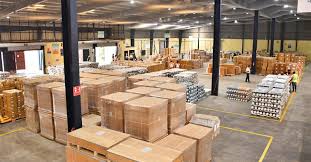Naveen Prakash, Director, Global Logistics Solutions India, shares expert insights on the benefits of Less than Container Load (LCL) shipping, highlighting its cost-efficiency, flexible routing, enhanced tracking, and environmental advantages in today’s evolving logistics landscape.

LCL shipping plays a crucial role in optimising overall supply chain costs
Naveen Prakash offers valuable insights into the rising importance of Less than Container Load (LCL) shipping in today’s logistics. Traditionally, Full Container Loads (FCLs) were used to export bulk commodities like agro-products and capital goods. However, since the 1990s, the logistics landscape has shifted due to smaller traders importing directly and the emergence of key transshipment hubs like Singapore and Dubai. These changes have made LCL consolidation a popular option.
LCL shipping offers notable advantages by allowing shippers to pay only for the space they use, making it a cost-effective choice. It also improves cash flow by enabling daily shipments instead of waiting to fill a full container. Additionally, LCL offers more flexible routing options—shippers can choose direct sailings or transshipment routes through various hubs, which FCL doesn’t provide. This flexibility makes LCL a preferred choice in the evolving logistics industry.
Enhancing efficiency
Beyond just ocean freight and terminal charges, LCL shipping plays a crucial role in optimising overall supply chain costs, especially for smaller shipments. LCL groupage companies offer added value by providing extra storage time at both the origin and destination warehouses, depending on the shipper’s contract. This flexibility allows businesses to manage inventory more effectively. Additionally, with multiple sailings per week, shippers can dispatch goods daily, improving cash flow. LCL consolidators also issue Forwarder Cargo Receipts (FCRs), enabling faster financial transactions as shippers receive payments upon cargo delivery to the consolidator’s warehouse rather than waiting for vessel sailings.
Challenges and Solutions
Recent global supply chain disruptions have highlighted several challenges for LCL shipments. LCL consolidators rely heavily on shipping lines, and issues such as overbooking, delayed transshipment, and insufficient information can lead to significant delays. Since LCL shipments often include cargo from multiple shippers, the complexity increases the risk of delays, impacting everything from small shipments worth $1,000 to those valued in millions. To address these challenges, LCL consolidators must improve communication with shipping lines, enhance tracking systems, and manage booking processes more effectively. By addressing these issues proactively, they can ensure more timely and secure deliveries despite ongoing global disruptions.
Tech and sustainability
Technology has significantly enhanced the management and tracking of LCL shipments. The integration of APIs with shipping lines and container terminals, along with electronic Bills of Lading, has streamlined tracking and improved efficiency. Looking ahead, LCL will become more competitive as shipping lines, logistics tech start-ups, and traditional freight forwarders enter the market.
In terms of sustainability, LCL shipments are inherently eco-friendly. Using a 20-foot container for just 4 CBM or 2 tonnes of cargo is less efficient compared to LCL, which minimises environmental impact by maximising container use. Expert packing in warehouses also reduces cargo damage, further supporting sustainability.











